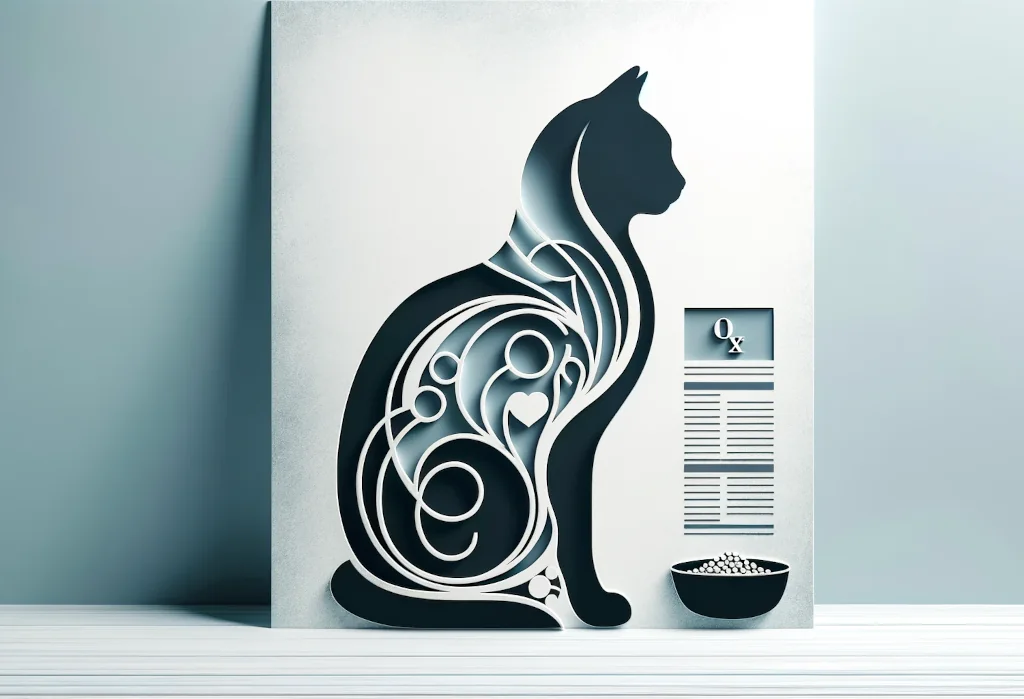Cats don’t read diet books, and they’re not scrolling through feline fitness blogs – yet, somehow, it’s up to you to figure out what’s on the menu. When Whiskers’ waistline or health needs a reboot, navigating the world of prescription diets can feel like herding…well, cats.
This post will guide you through the essentials of prescription diets for cats, promising practical insights into why they may be necessary, and how they can help your furry friend thrive.
Key takeaways:
- Prescription diets are specialized cat foods designed by vets to address specific health issues, ranging from urinary problems to obesity.
- Consistent veterinary involvement is crucial when using prescription diets to ensure they match your cat’s unique health needs and track progress.
- Transitioning your cat to a prescription diet takes patience and observation; expect gradual improvements in energy, appetite, weight, coat quality, and symptom relief.
What Are Prescription Diets for Cats, and Why Might My Cat Need One?
You might be wondering what sets apart prescription diets from the kibble you typically toss into your kitty’s bowl. Prescription diets, also known as therapeutic or veterinary diets, aren’t your garden-variety cat chow. They are specially formulated foods recommended by veterinarians, tailored to address specific health issues your feline friend may be facing.
It’s a bit like how some of us need a dash of extra something in our diets—fiber, iron, or maybe cutting back on the sugar. Similarly, the health challenges your cat might encounter, such as urinary tract issues, obesity, kidney disease, or food allergies, often require more than just a standard meal plan to manage effectively.
For instance, a cat with urinary problems might be given a diet that helps control the pH of their urine and promotes kidney health. On the flip side, a chunky kitty on the brink of obesity could benefit from a calorie-restricted diet to help shed those pesky extra pounds. Each prescription diet is uniquely designed to take a jab at the root cause of your cat’s health concern, not just alleviate symptoms.
How Do Prescription Diets Work to Improve My Cat’s Health?
Think of prescription diets as a secret ingredient in your cat’s wellness regimen. These diets are meticulously engineered to act like a gentle nudge, guiding your pet’s body back to a healthier state. Here’s the lowdown: ingredients and nutrient compositions in prescription diets are concocted to deal straight with specific maladies.
Take kidney disease, for example. Prescription diets for this condition typically slash the levels of protein, phosphorus, and sodium, all of which can put additional strain on those precious kidneys. What they bump up instead are omega-3 fatty acids and antioxidants to support kidney function.
In the realm of food allergies, you’ll find diets that use novel proteins – think kangaroo or duck – that your cat’s immune system hasn’t met yet, hence less likely to trigger an allergic reaction. Plus, these diets often come with an added bonus of essential fatty acids to soothe inflamed skin.
Don’t forget that these diets need to work in harmony with any other treatments your vet prescribes, creating a tag-team effect to nurse your fluffball back to health. Always remember, a prescription diet is a part of a holistic treatment plan, and it’s best to chat with your vet about how it all fits together.
What Should I Expect When Transitioning My Cat to a Prescription Diet?
Switching your cat’s diet is akin to introducing them to a new dance move – it’s all about the rhythm and taking it slow. Cats are creatures of habit and might turn up their noses at unfamiliar food. So, here’s a step-by-step guide to slide into the transition smoother than a cat’s purr:
-
Blend It In : Start by mixing a bit of the prescription food with their current fare. Gradually shift the ratios over the course of a week or two until the old food has been entirely replaced.
-
Keep It Consistent : Cats are like clocks when it comes to mealtime. Try serving the new food at the same time and place as their regular meals to keep things steady.
-
Monitor and Observe : Keep an eye on your cat’s reaction to the new diet. Some kitties might gobble it up with gusto, while others may take a while to warm up to it.
A great tip – and something that’s often missed – is to warm the food slightly. Warming food can enhance its aroma, making it more enticing for your cat who relies heavily on their sense of smell.
Remember, the key to a successful transition is patience. If your cat resists at first, don’t despair—stay the course and keep an open dialogue with your vet. This isn’t the tail end of your journey with your cat’s health; it’s a new chapter that promises more playful days and loving headbutts. Be sure to keep your vet in the loop about how your feline friend is adapting to the new diet!
Learn more about managing feline diets from the Cornell University College of Veterinary Medicine.
Can I Just Buy Prescription Cat Food, or Does My Vet Really Need to Be Involved?
When it comes to your furry friend’s well-being, cutting corners is definitely not the cat’s pajamas. You might wonder if you can skip the vet visit and snag some prescription cat food straight off the shelf. The short answer is no, and here’s why your vet needs to be in the loop.
Prescription diets are formulated for very specific health conditions, and what’s the cat’s meow for one might be a total cat-astrophe for another. Vets have the expertise to pinpoint your cat’s health issues and recommend a diet that’s tailored to help manage them. Self-diagnosing can lead to all sorts of problems—imagine trying to read the wind without a weather vane! Plus, without a professional diagnosis, you could inadvertently worsen your cat’s condition or overlook a more serious underlying issue.
The takeaway? Keep your vet on speed dial. They’ll lead you through the maze of feline nutrition and ensure your cat’s diet is just purr-fect for their unique needs.
How Will I Know if the Prescription Diet Is Working for My Cat?
Monitoring your cat’s progress on a prescription diet can be like trying to solve a puzzle without the picture on the box. But there are signs to look for that show the pieces are falling into place:
- Energy Levels: If your cat’s got more spring in her step, that’s a thumbs up!
- Appetite: A return to regular chow-down behaviors is a telltale sign.
- Weight: Depending on the goal, stable or appropriate weight changes are positive.
- Coat Quality: A luxurious, shiny coat is the equivalent of a cat’s glowing review.
- Symptom Relief: Key for issues like digestive troubles or urinary woes.
On top of these, your vet will likely suggest regular check-ups to monitor clinical signs—think blood work or urine tests. If things aren’t looking up, it’s back to the drawing board with your vet to tweak the plan.
Keep this in mind: patience is key. Some benefits take time to emerge, just like waiting for catnip to grow.
Related: Dietary supplements for cats
Are There Any Risks or Downsides to Prescription Diets for Cats?
Now, let’s chat about the less glamorous side of prescription diets. For all their benefits, these diets come with caveats.
Firstly, the cost can be a bit of a shocker. Prescription diets often come with a heftier price tag than regular kibble. It’s important to budget for this to avoid any financial surprises down the road.
Palatability can be hit or miss. Some cats turn up their noses at prescription grub. If your cat would rather play with a dead mouse than eat their new food, speak with your vet for strategies to make the diet more appealing, like gradual introduction or flavor enhancers compatible with the diet.
One unique piece of advice: Be careful with treats. Many folks don’t realize treats can counteract the diet’s benefits. Imagine trying to put out a fire while someone’s adding fuel; that’s what the wrong treat can do. Consult your vet for guidance on treat options that complement the prescription diet.
And remember, mixing prescription diets with regular food is a no-go, unless your vet says otherwise; you wouldn’t dilute a medicine, so don’t do it with food designed to treat a health condition.
Keeping these points in mind, prescription diets, though not perfect for every scenario, can work wonders for cats needing that extra bit of nutritional care. Keep the dialogue open with your vet, follow their guidance, and your cat will be on the road to feeling frisky and fabulous in no time. ?
Alex, a passionate animal lover, has experience in training and understanding animal behavior. As a proud pet parent to two dogs and three cats, he founded AnimalReport.net to share insights from animal experts and expand his knowledge of the animal kingdom.





